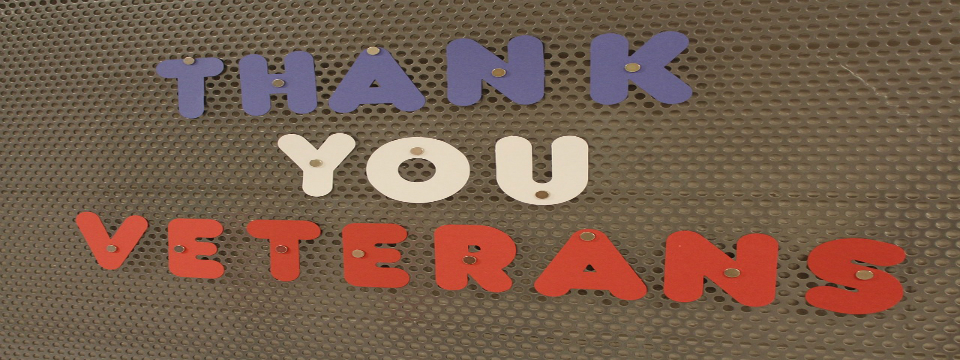Making the case for mentors in helping veterans translate their skills to civilian life
 Written by Julie Silard Kantor, President & CEO, Twomentor, LLC
Written by Julie Silard Kantor, President & CEO, Twomentor, LLC
At Twomentor, we like to share bi-weekly thought leadership from phenomenal executives and social entrepreneurs focused on: social impact entrepreneurship, mentoring cultures, sponsorship and elevating women & diversity in STEM careers. In an increasingly competitive STEM workforce, did you know that out of 1.4 million active duty military, at least 200,000 perform science, engineering and technical roles? Billions of dollars have been invested in training our veterans for leadership and with key skills to make it in the market economy. I learned this and more in a great meeting this week with Victoria Tucker Co-Founder & CEO of ZBGlobal as we discussed the business case for mentoring (and hiring!) veterans who have served our country.
Julie@Twomentor: What’s the business case for mentoring veterans for STEM companies specifically?
Victoria Tucker: Making the business case for mentoring a veteran starts with the rationale for hiring. A few years ago, I wrote an article The Dollars and Sense of Hiring a Military Veteran which listed twenty reasons. All address why companies should hire, but a few go beyond and argue the value-add – which appeals to the STEM industry. Foremost is that veterans are agile adopters of business structure and maneuver well in times of change or when working under pressure. As one of my veteran teammates said in response to a workplace challenge “No one is throwing a grenade at us. This is an easy fix.”
Veterans are also data driven, problem solvers, results-oriented, team players and project planners – all of which are coveted traits in STEM settings from those seeking to hire. And, veterans tend to be more emotionally intelligent when compared to those in the same age and skill bracket who do not have a military background. Quite frankly, many tend to have a more mature perspective than their non-veteran counterparts – a result of coming face-to-face with some pretty audacious situations.
The business argument for mentoring is different from hiring, but just as straightforward. You mentor to tailor the transition of a veteran into a specific work area that is beneficial to both the veteran and to the company. Many think that mentoring for the benefit of a company is less than noble, but I disagree. There is obvious value in onboarding an individual you have spent time advising. I believe veterans understand and agree with that premise. At the end of the day, mentoring is likely to be repeated down the road if each party walks away having gained something of value in their first encounter.
Twomentor: Why do veterans benefit from mentoring even more so than those who don’t come from a military background? Is the mentoring approach different, and if so, how?
Victoria Tucker: Veterans can quickly apply their experience to a given task, BUT (and it’s a big one) they need personal guidance on how to make the translation from a military setting into a civilian one. Many will tell you that moving out of the military and into a civilian workplace is akin to moving to an entirely different country where the culture and language is foreign. Mentoring acts as a bridge during this transition. The approach focuses on everything from describing military experience in a resume (the way a hiring manager would understand) to ways to interact in a matrix work setting where influencing without title or authority is expected.
Twomentor: Why is the emphasis on mentoring instead of coaching?
Victoria Tucker: Mentoring isn’t telling someone what to do – that’s coaching. Mentoring involves asking smart questions and listening. Mentors provide a thoughtful and candid story-telling of what they did, why they did it, and what was learned. Equally important is the translation of that experience into a language the person being mentored can readily understand and apply. My view on this comes from directing a two-year research project on Tribal Knowledge Transfer with the University of California across several campuses. Some of my STEM students (all professional managers from scientific and high tech companies) wanted to know if there was software that could siphon the important stuff in someone’s head before leaving the office for the day just in case that person didn’t show the following morning. That was literally the request. After working with more than a hundred managers across forty STEM oriented companies, my research team discovered some interesting findings, and while some included technology tidbits, nothing was as intriguing as the following “People go to people.” People prefer people because they can interpret, synthesize, express and convey needed information better than any technology. People tell stories and that makes the learning personal and therefore memorable. This is one reason I agree with adding the “A” for “art” to STEM making it STEAM. The ability to tell stories through art is a critical skill set for companies who need to persuade consumers to buy their products or services.
Twomentor: What are some of the stereotypes mentors have of veterans?
Victoria Tucker: The most common is that all veterans have post-traumatic stress disorder (PTSD). What’s interesting is that, according to the government’s national center for PTSD, about 10 in every 100 Americans in the general population experience this condition. For veterans in most recent wars, that number is somewhere between 11-20 for every 100 people. So, while veterans as a group have more PTSD compared with the general population, at most only 20% are adversely affected. This is a far cry from saying every veteran suffers from PTSD.
Secondly, some believe that veterans “can’t lead; they only know how to follow.” This is a myth and a disservice to the time and money invested in military personnel aimed at building leadership competencies. In fact, many veterans have led others with some being responsible for hundreds, even thousands of personnel, throughout their service.
Another stereotype is that some believe male veterans can’t work for female managers.
Twomentor: Are there frequently asked questions that veterans ask their mentors? What are some of the more common ones?
Victoria Tucker: Some of the more common questions include: “How should I write my resume given my military background?”; “How should I talk about my experience during an interview?”; “How do I respond to someone who thinks all veterans have PTSD?”; “Should I say yes sir or yes ma’am to the people I report to?”; “When is it appropriate to take initiative… when is it not?”; and, “What are the common forms of people politics in the workplace and how do I navigate them?”
There are even some questions that may not be asked by the veteran, though he or she might hope the mentor would broach the subject. For example, one of the craziest questions I’ve heard a hiring manager ask a veteran was, “Did you kill anyone?” While the majority of professionals would never ask such a thing, many think about it. Mentors can help veterans walk questions like that through to a constructive response to avoid being blind-sided.
Twomentor: What are some misconceptions veterans have about working in STEM fields?
Victoria Tucker: Veterans often think a Ph.D. and a lab coat are required. This is a myth. The necessity of having a science or technology degree (along with several years of experience) is not a requirement for approximately 60% of the business-oriented job functions found in a STEM company. To clarify, there are many veterans who are great fits for the technological or scientifically oriented jobs, but many more sync well on the business side in areas like project management, sales, marketing, operations, quality and so on.
There is also the misconception that every science company is just about biology or chemistry. And, that every engineering company is just about – well – engineering. The truth is that today’s emerging STEM companies are beating down all stereotypes by converging nearly all disciplines under one roof. One of my favorite examples on this front is Reflexion Health – a start-up in the digital health/telemedicine space. Their CEO, Dr. Joseph Smith, told me, “One of the surprising pieces about becoming a CEO for a digital health company is how many technical specialties must come together in real time to create our product. I have information technologists who work closely with animators who must collaborate with research scientists, who also work with physicians and who must all dialogue with marketing and commercialization groups. Operations are not siloed, nor are skills.”
Twomentor: When it comes to mentoring veterans, are there types of STEM professionals better at it than others?
Victoria Tucker: Maybe not better, but perhaps more at ease with the process. Most of the mentors I’ve worked with over the years come from marketing, sales, executive management, human resources, customer service and training departments. It makes sense that those who tend to engage readily with others are more apt to volunteer as a mentor. But, I also believe that a willingness to connect in a meaningful fashion is the foremost characteristic needed when mentoring. It is also important to note that there’s something memorable when the mentor is a fellow veteran who has already successfully made the transition. Knowing first-hand how challenging the shift can be adds some heft to the mentoring exchange.
Twomentor: Where can veterans interested in STEM careers get mentoring and job networking opportunities?
Victoria Tucker: MVPvets (Mentoring Veterans Program) connects transitioning veterans with mentors in the health innovation industry – a cluster comprised of thousands of STEM-based companies. Besides engaging with mentors, veterans in this not-for-profit program have access to thousands of job postings each month and to comprehensive eLearning programs to help hone skill sets. And, companies who partner with MVPvets host on-site re-careering events aimed at introducing veterans to potential career opportunities. There are no costs to the veteran (or spouse) to join MVPvets, which makes this truly accessible. Simply put, MVPvets knows how to connect veterans with mentors and with jobs in the fast-growing STEM space.
To read to original interview on the Huffington Post, click here.










